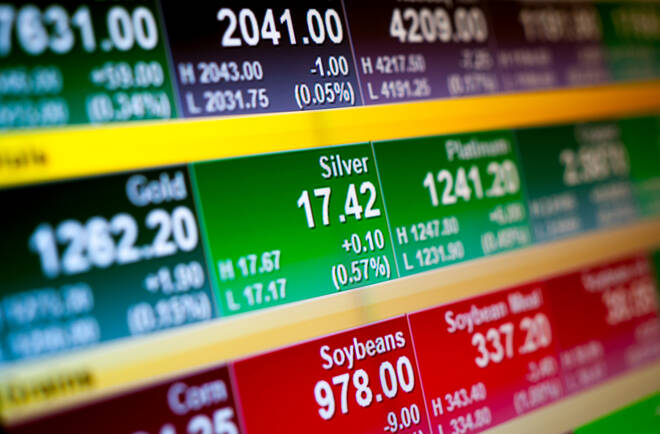Advertisement
Advertisement
European Equities: A Week in Review – 30/07/21
By:
It was a choppy week for the European majors. The DAX30 ended the week in the red, with some disappointing stats weighing in the week.
The Majors
It was another choppy week for the majors in the week ending 30th July, with the majors taking another slide to kickstart the week.
The DAX30 fell by 0.80%, while the CAC40 and the EuroStoxx600 ended the week with relatively modest gains of 0.67% and 0.05% respectively.
Concern over the continued rise in new Delta variant cases weighed on the markets and sentiment towards the economic outlook.
Mixed economic data from Germany, in particular, also pressured the markets in the week.
There were a number of support avenues for the majors, however.
Upward growth revisions from the IMF for advanced economies, a dovish FED, and corporate earnings provided support.
GDP numbers from France and the Eurozone were also ahead of forecasts at the end of the week. The data limited the damage in what was a bearish end to the week.
The Stats
Through much of the week, the German economy was in focus.
Business and consumer sentiment figures delivered mixed results. While business sentiment waned in July, consumer confidence remained unchanged, in spite of the reopening of economies.
Unemployment figures from Germany were upbeat. The unemployment fell from 5.9% to 5.7% in July.
Inflationary pressures continued to surge, however, with Germany’s annual rate of inflation accelerating in July to 3.8%.
At the end of the week, 1st estimate GDP numbers and prelim inflation figures were the key stats of the week.
Quarter-on-quarter, the French economy grew by 0.9% versus a forecasted 0.7% in the 2nd quarter.
Germany saw growth of 1.5%, falling short of a forecasted 1.9%. In the 1st quarter, the economy had contracted by 2.1%.
For the Eurozone, the economy grew by 2.0%, coming in ahead of a forecasted 1.5%. The economy had contracted by 0.3% in the previous quarter.
Inflation also ticked up, aligned with member state numbers. According to prelim figures, the Eurozone’s annual rate of inflation accelerated from 1.9% to 2.2% in July, rising above the ECB’s 2% target.
From the U.S
Consumer sentiment and durable goods orders drew attention early in the week.
In June, durable goods orders ex transportation rose by 0.3%, following a 0.5% increase in May.
More significantly was a pickup in consumer confidence in July. The CB Consumer Confidence Index rose from 128.9 to 129.1. Economists had forecast a decline to 126.0.
On Thursday, jobless claims and 2nd quarter GDP numbers were in focus. The stats were skewed to the negative, however.
In the 2nd quarter, the U.S economy grew by 6.5%. This fell well short of a forecasted growth of 8.5%.
Jobless claims also fell short of expectations, with initial jobless claims falling from 424k to 400k. Economists had forecast a decline to 370k.
At the end of the week, personal spending and inflation figures came in ahead of forecasts, however.
Personal spending rose by 1.0% in June, with the annual rate of inflation seeing a pickup from 3.4% to 3.5%.
While the stats were material, the FED monetary policy and press conference were the main events of the week.
In line with market expectations, the FED left policy unchanged. The FED Chair also looked to assure the markets that there would be no near-term moves, the guidance considered dovish.
The Market Movers
From the DAX, it was a mixed week for the auto sector. Daimler rose by 0.32% to buck the trend in the week. Continental slid by 2.49% to lead the way down, however. BMW and Volkswagen also struggled, ending the week down by 1.64% and by 1.34% respectively.
It was also a mixed week for the banking sector. Deutsche Bank rose by 1.18%, while Commerzbank fell by 0.18%.
From the CAC, it was a bullish week for the banks. BNP Paribas and Soc Gen rose by 1.74% and by 1.06% respectively, with Credit Agricole gaining 0.77%.
The French auto sector also found support with Stellantis NV and Renault seeing gains of 2.64% and 2.59% respectively.
Air France-KLM slipped by 0.05%, however, while Airbus rallied by 3.77%.
On the VIX Index
It was a back into the green for the VIX.
In the week ending 30th July, the VIX rose by 6.05%. Partially reversing a 6.78% fall from the previous week, the VIX ended the week at 18.24.
3-days in the green from 5 sessions, which included a 10.13% jump on Tuesday delivered the upside.
For the week, the NASDAQ fell by 1.11%, with the Dow and the S&P500 ending the week down by 0.36% and by 0.37% respectively.
The Week Ahead
It’s a relatively busy week ahead on the economic calendar.
Private sector PMIs for Italy and Spain will be in focus. Finalized numbers for France, Germany, and the Eurozone are also due out.
Any revisions to prelim numbers and Italy’s PMIs will likely draw the greatest interest.
Early in the week, Eurozone and German retail sales figures will also be key, however. The ECB is looking for a consumption driven economic recovery.
Later in the week, the ECB Economic Bulletin and member state trade data will also be in focus.
From the U.S, ISM Manufacturing and Non-Manufacturing PMIs will be key through the 1st half of the week.
On the labor market front, however, ADP nonfarm employment change, weekly jobless claims, and nonfarm payrolls will also influence.
Away from the economic calendar, corporate earnings and COVID-19 news updates need continued monitoring.
About the Author
Bob Masonauthor
With over 28 years of experience in the financial industry, Bob has worked with various global rating agencies and multinational banks. Currently he is covering currencies, commodities, alternative asset classes and global equities, focusing mostly on European and Asian markets.
Advertisement
